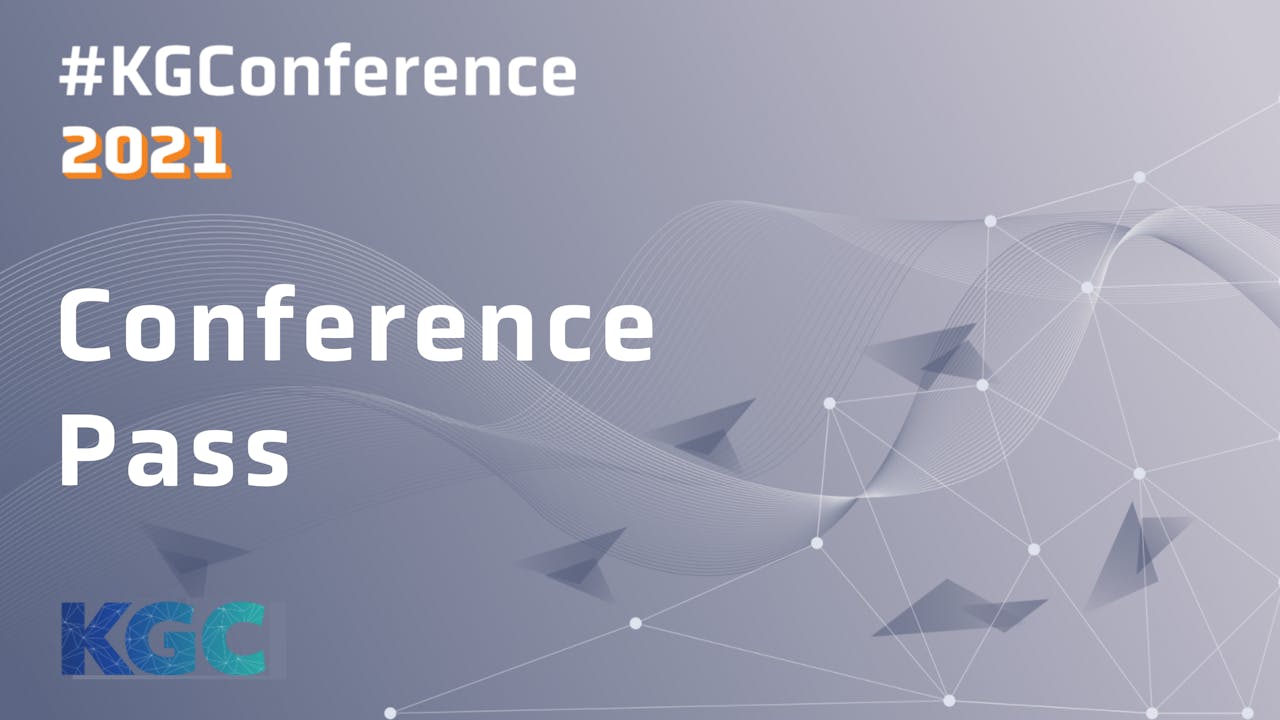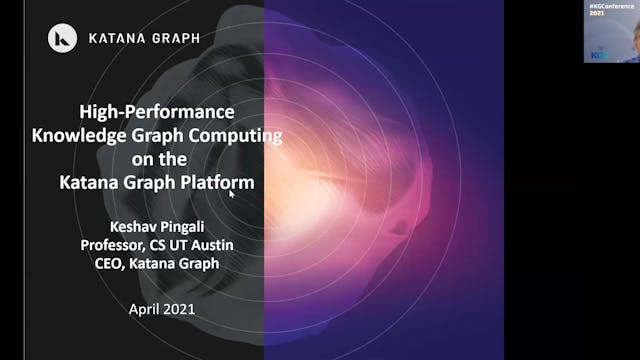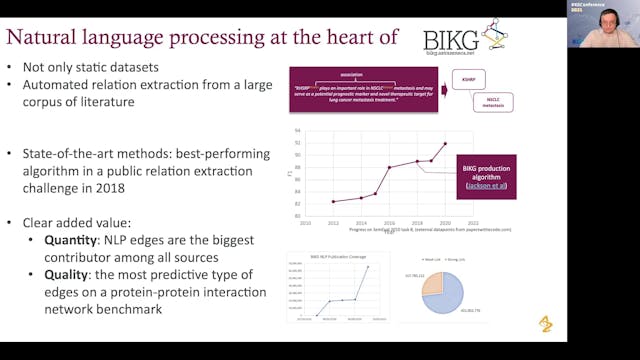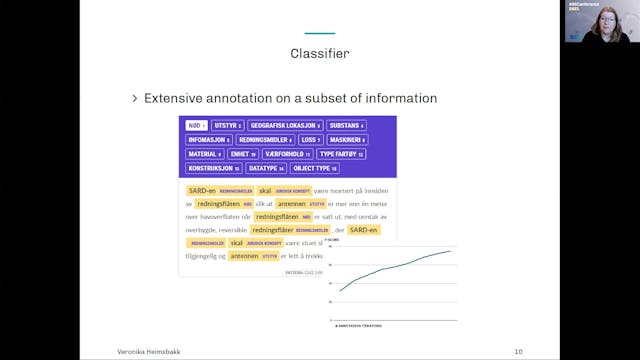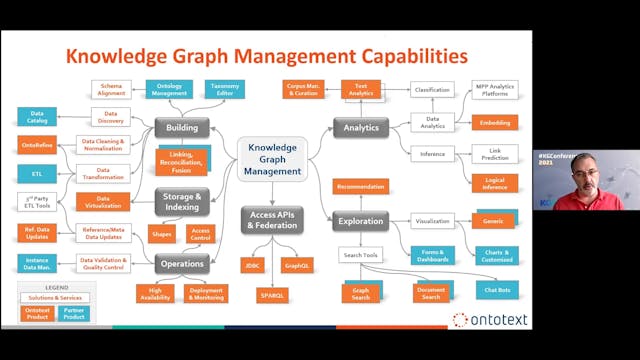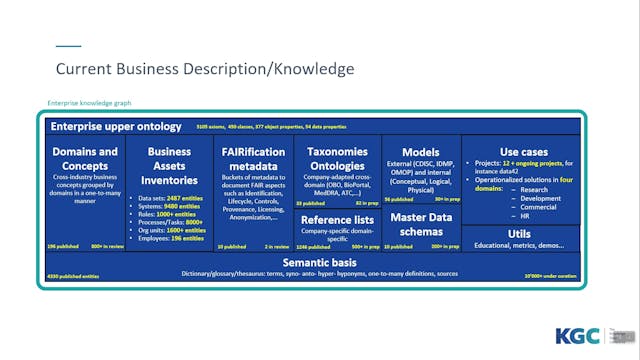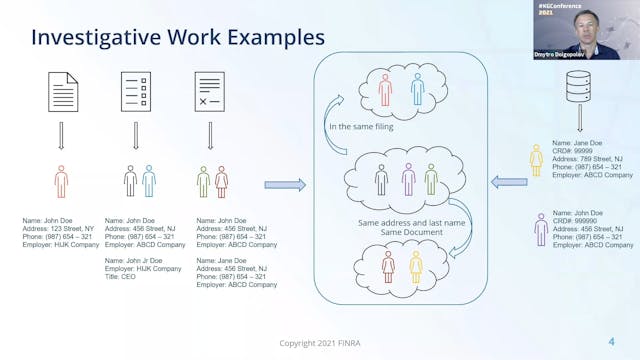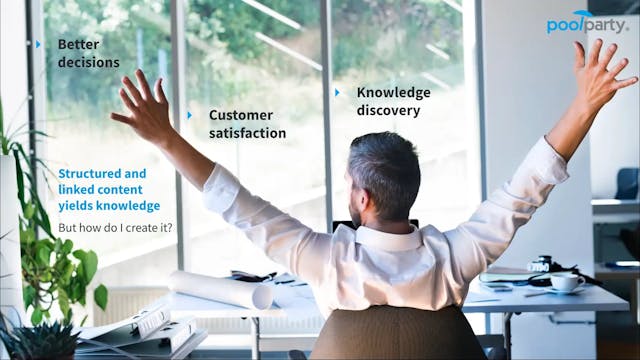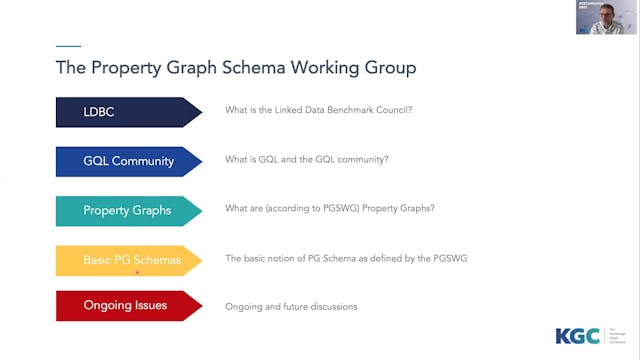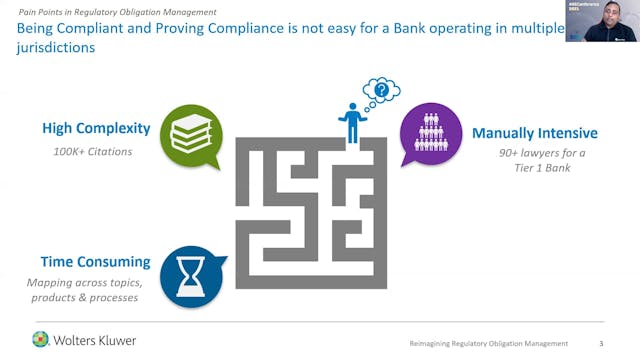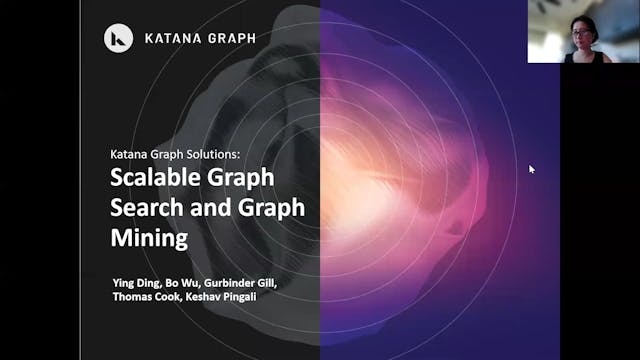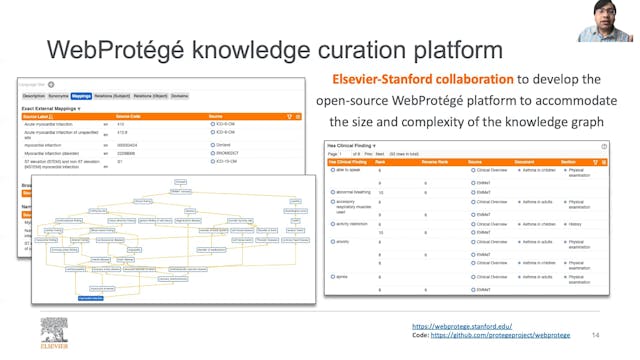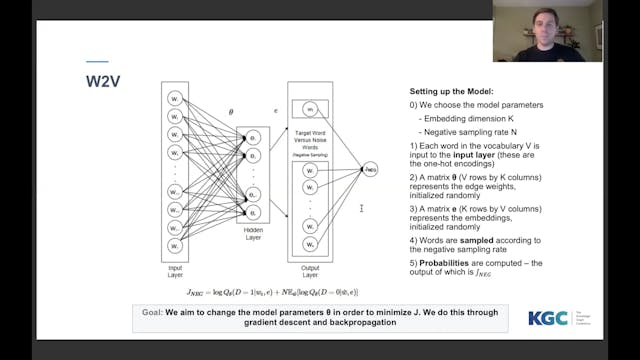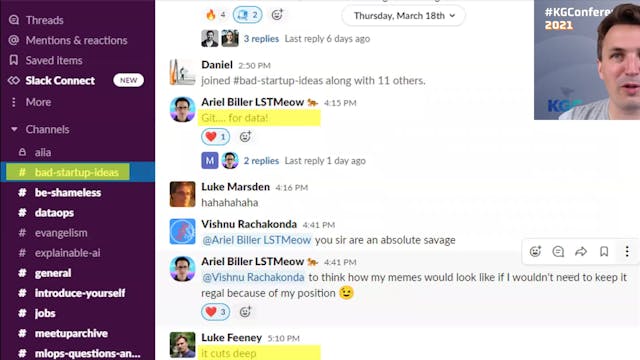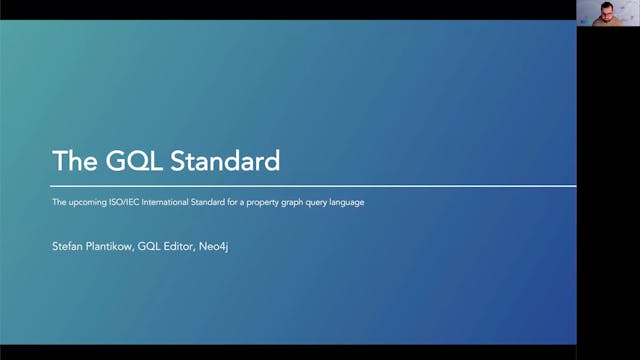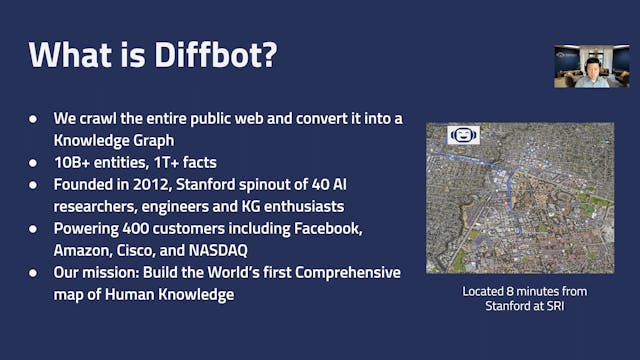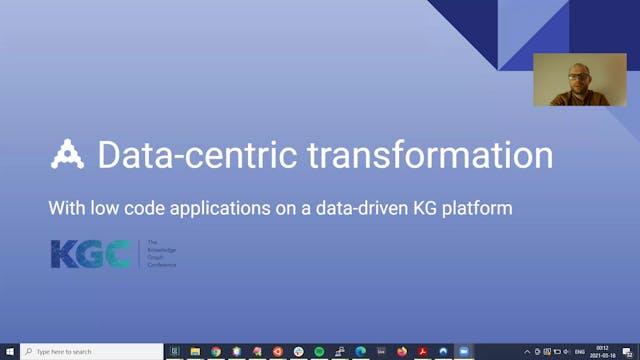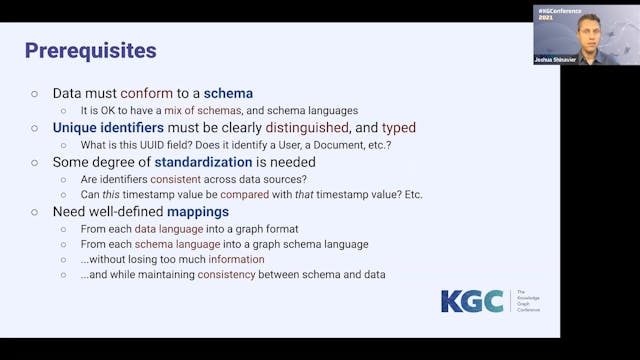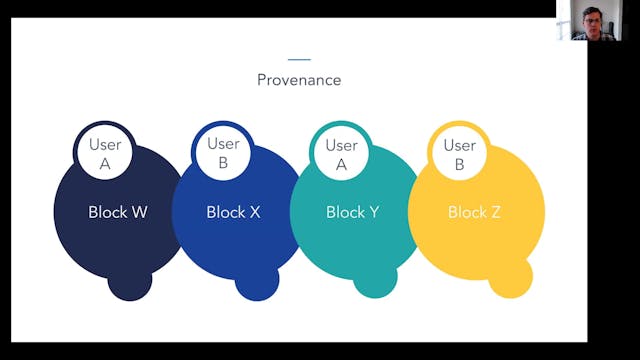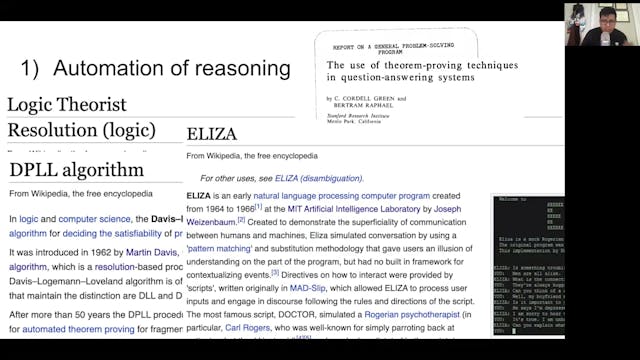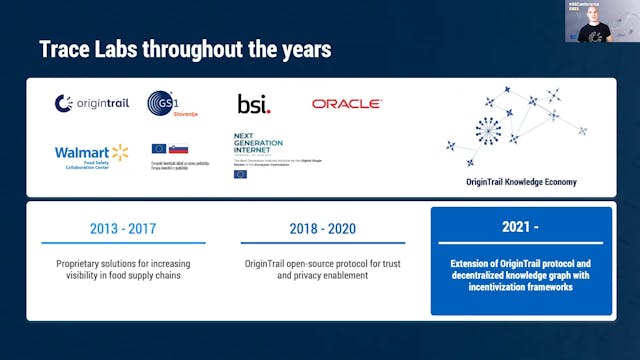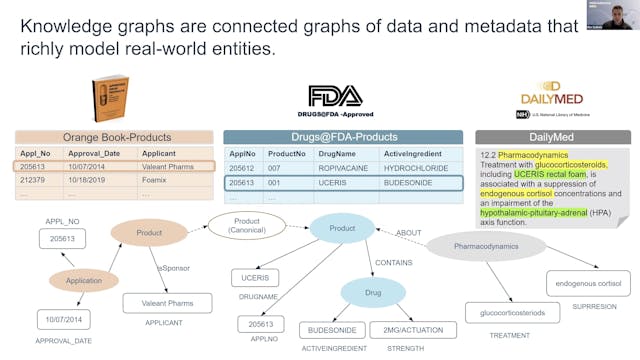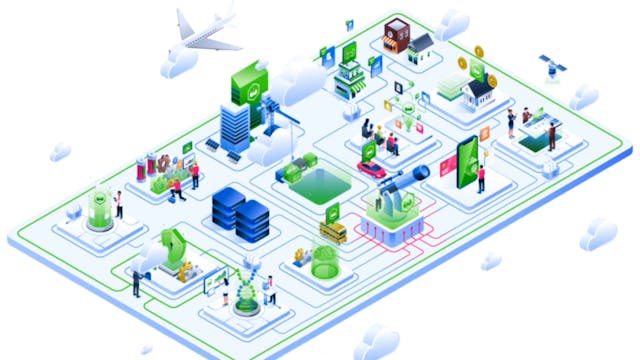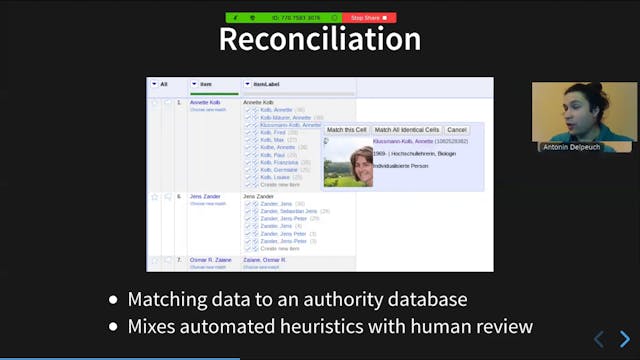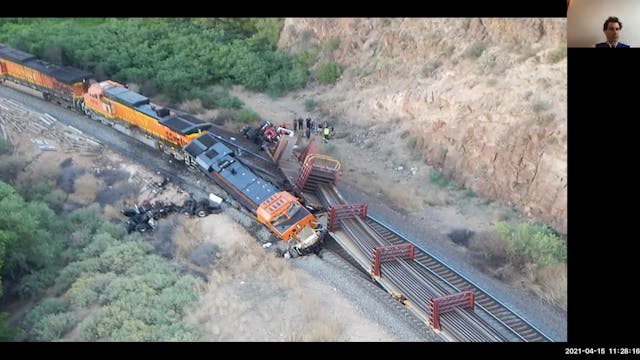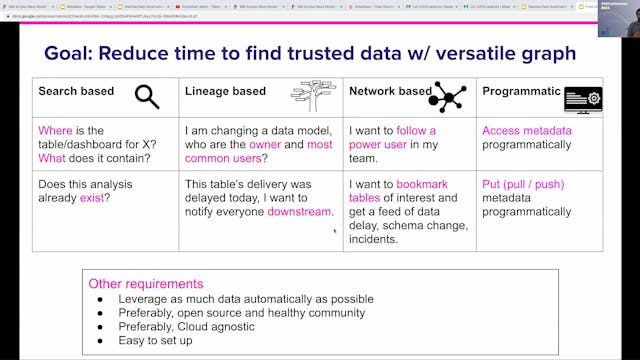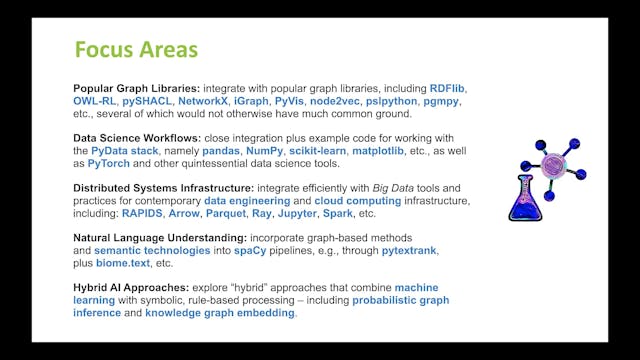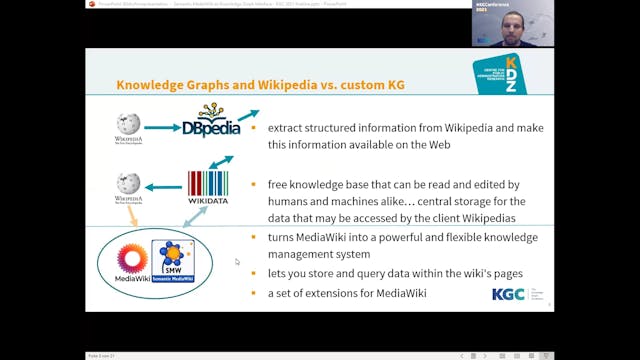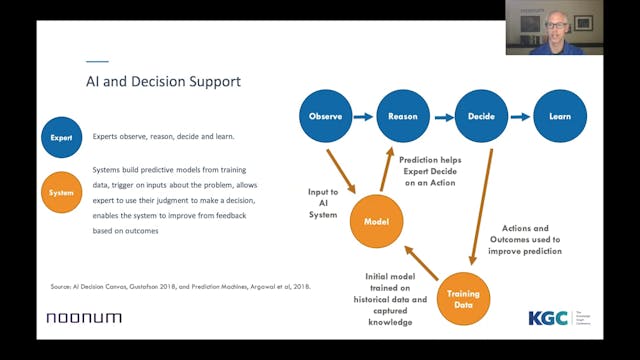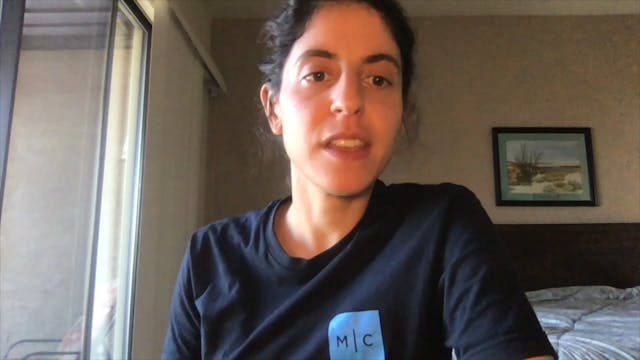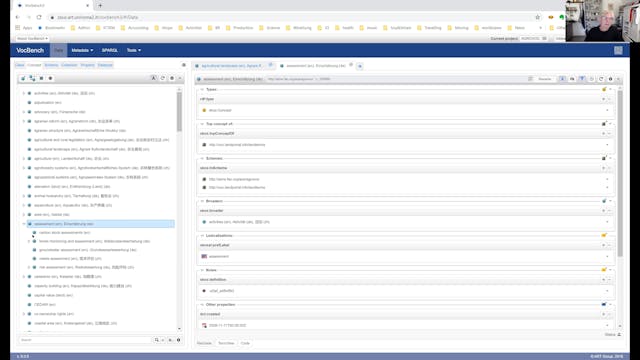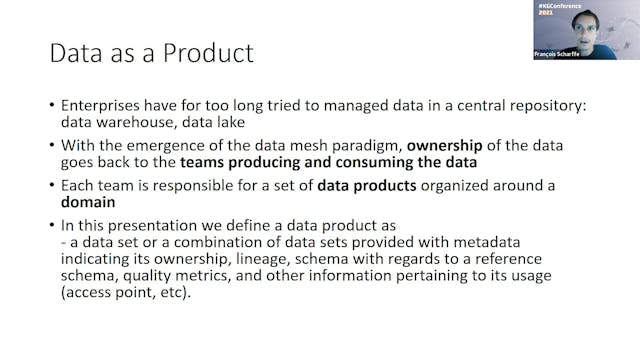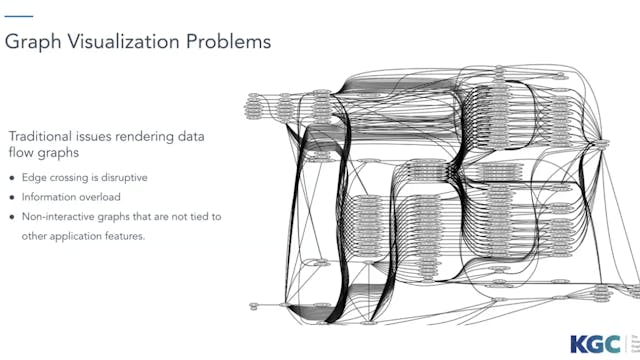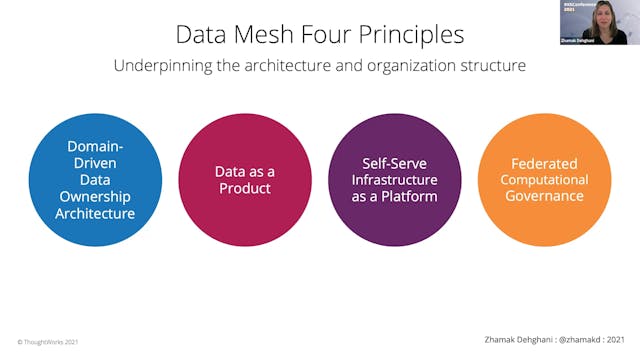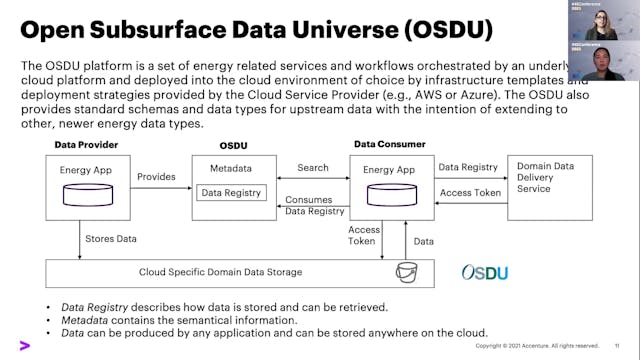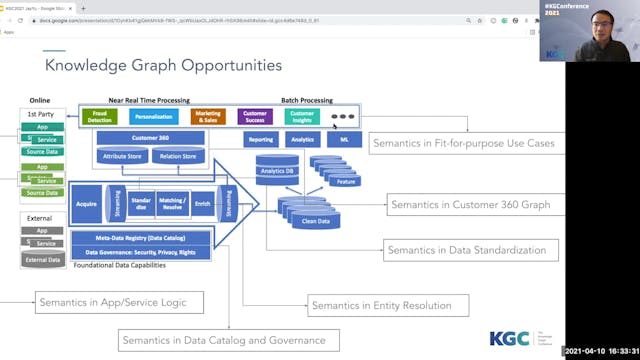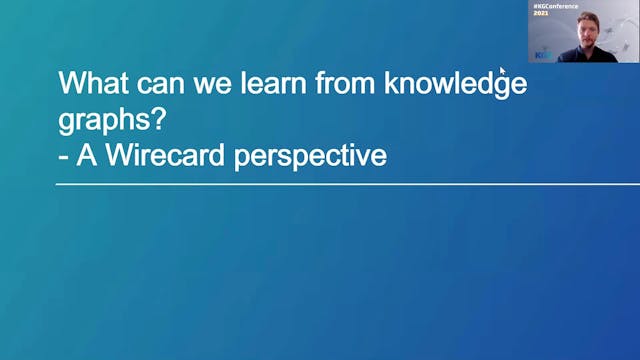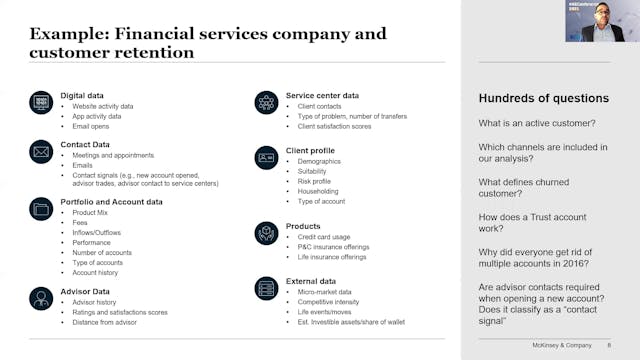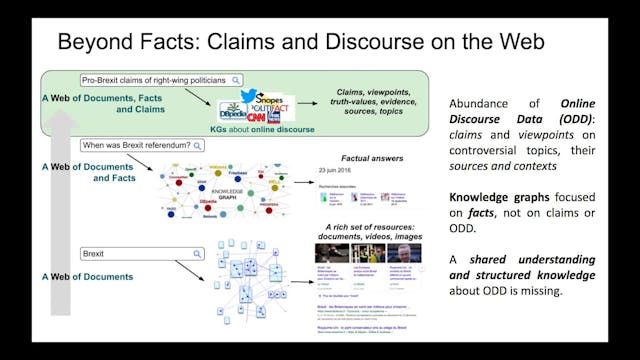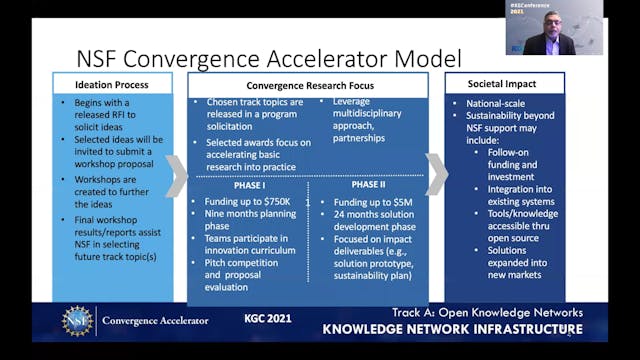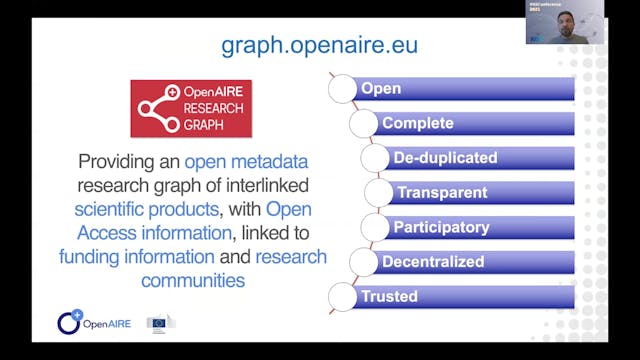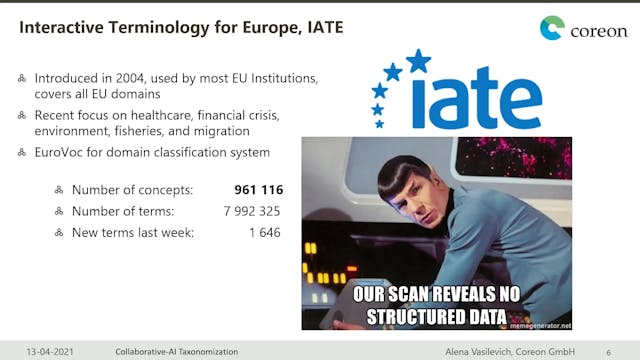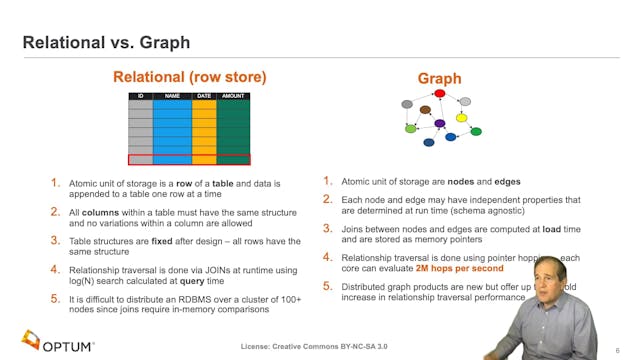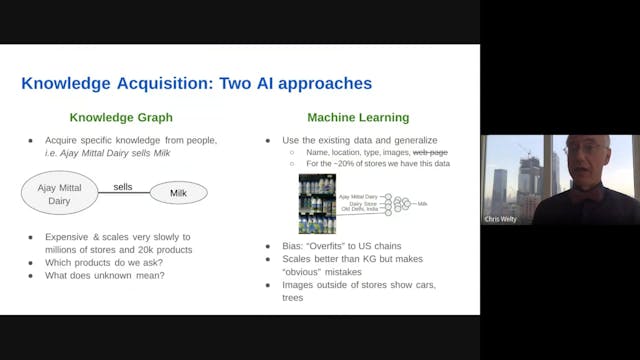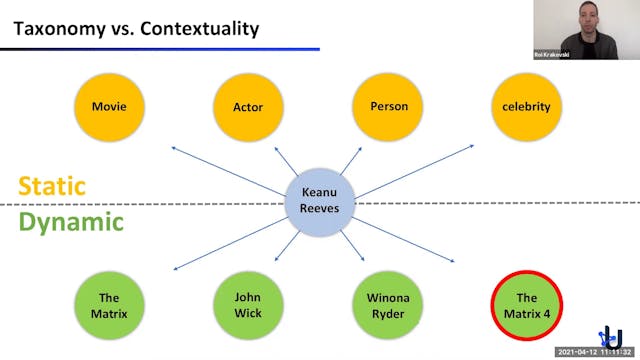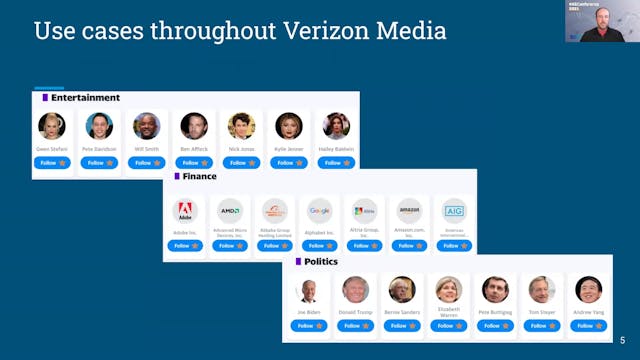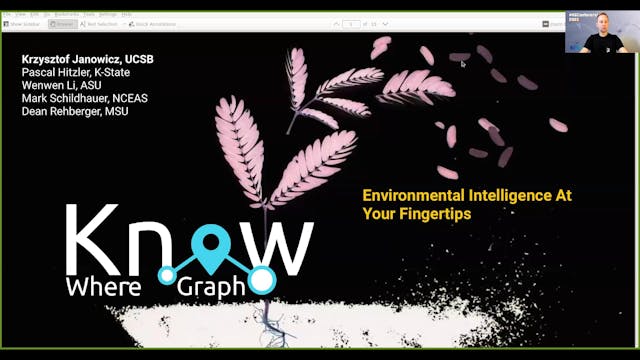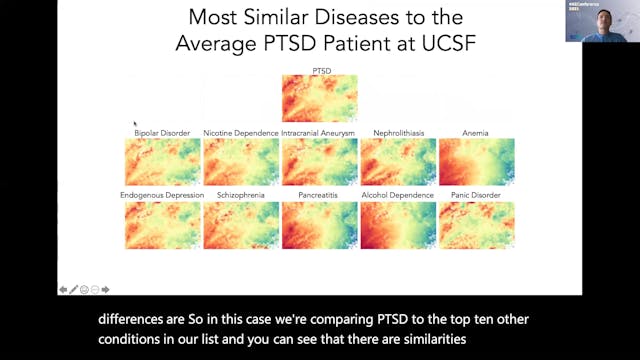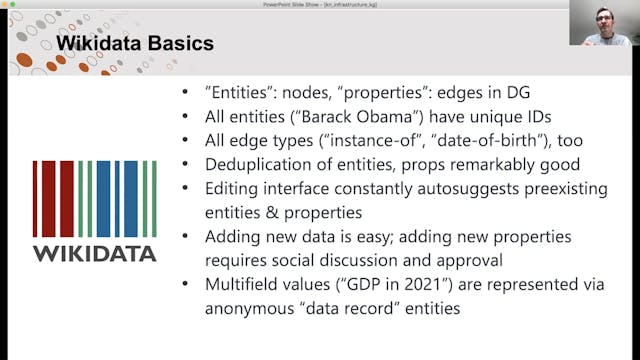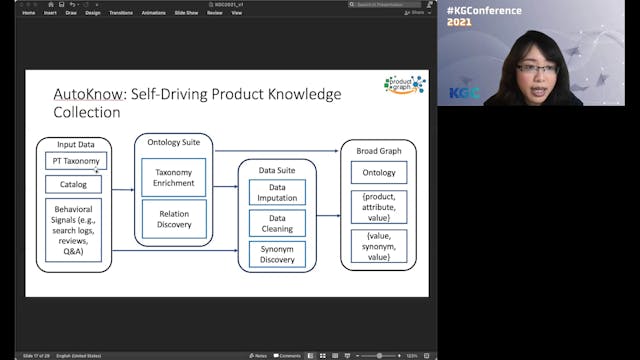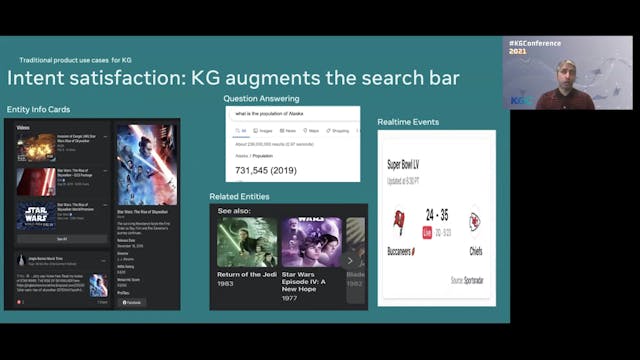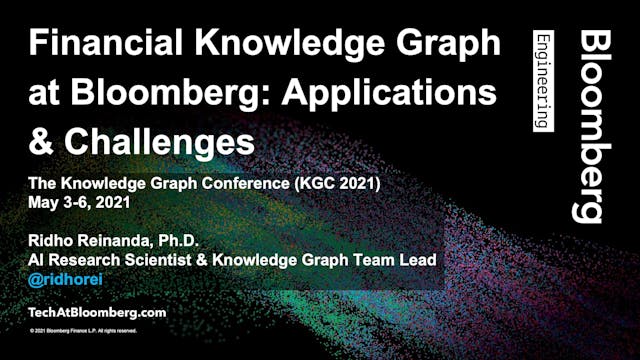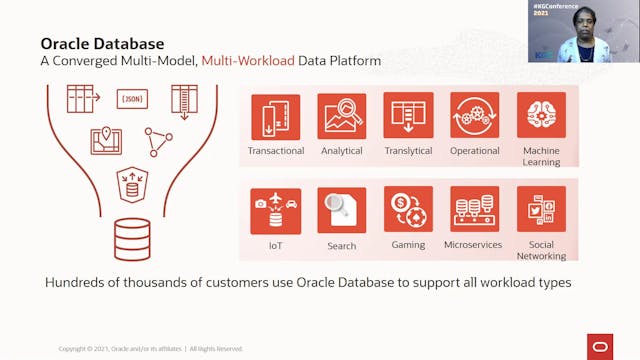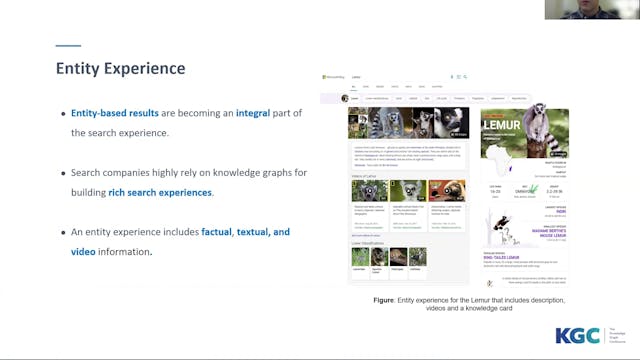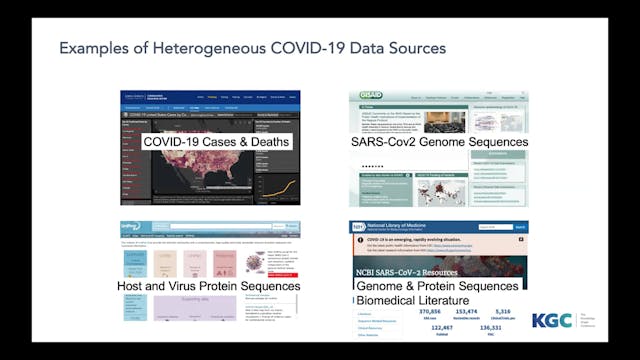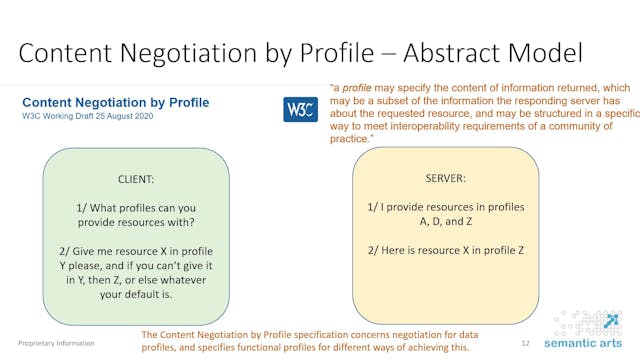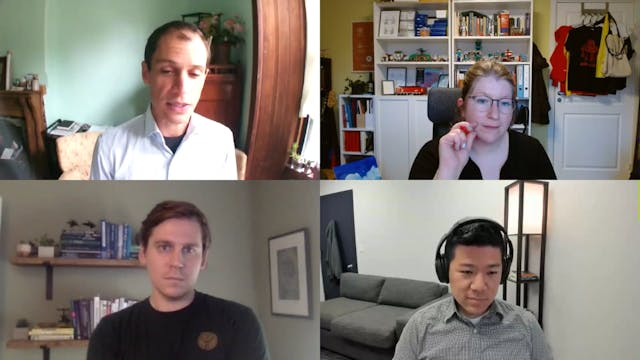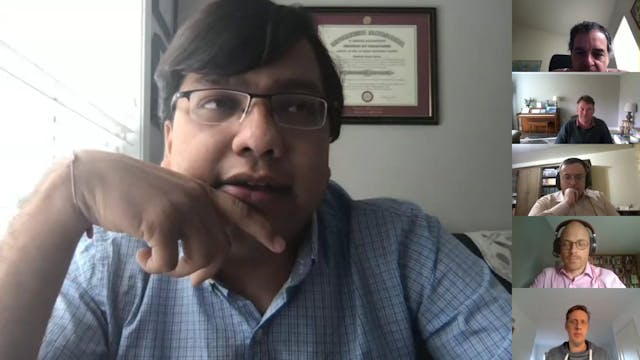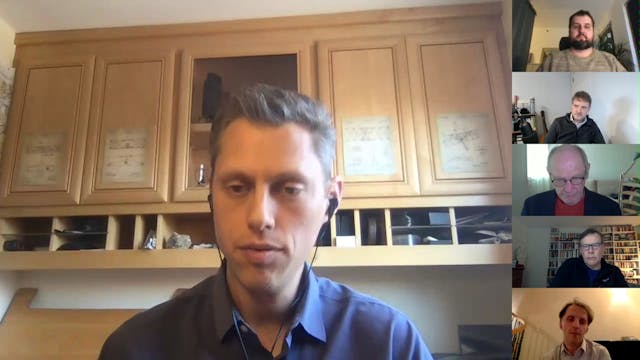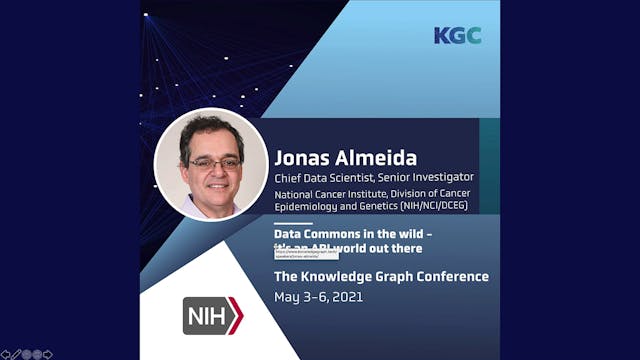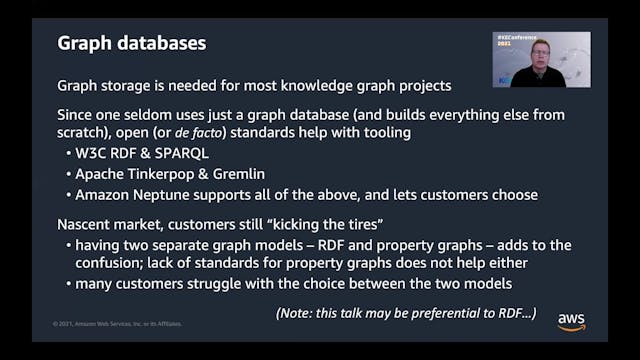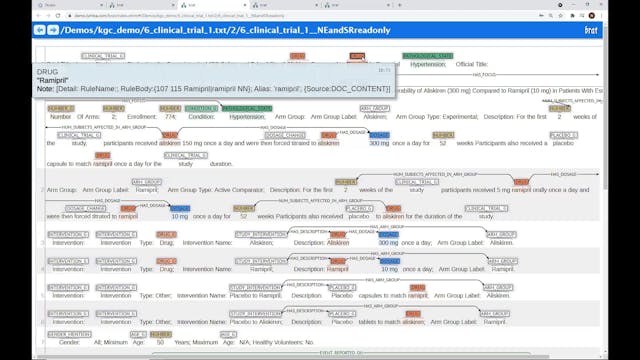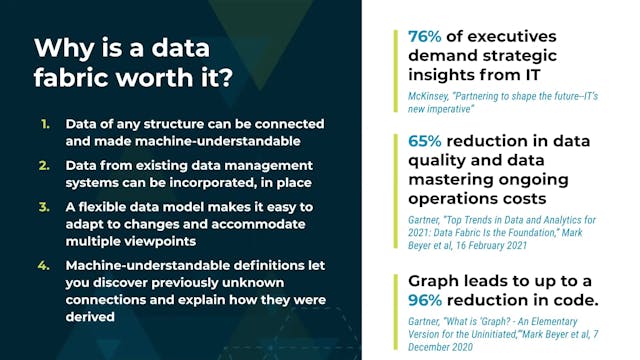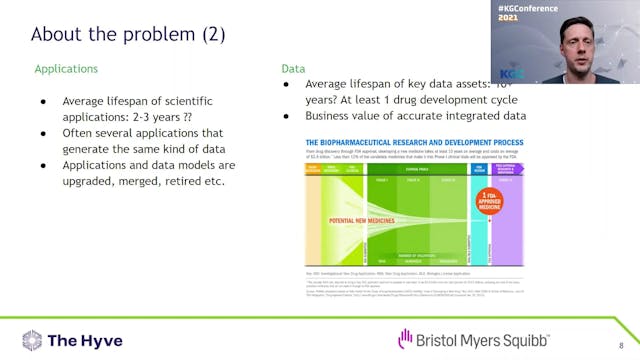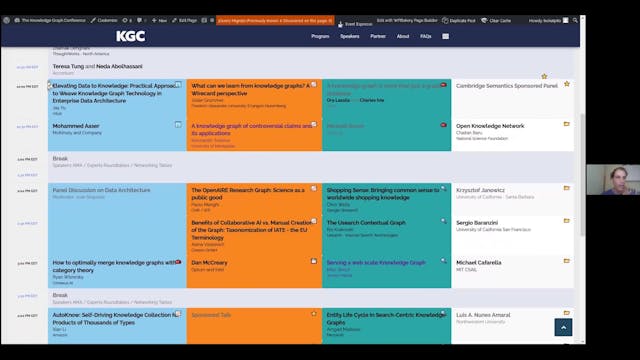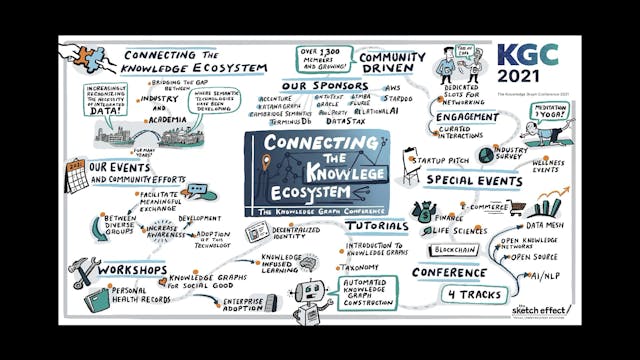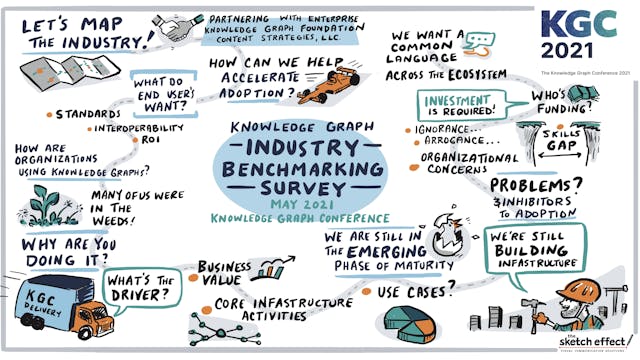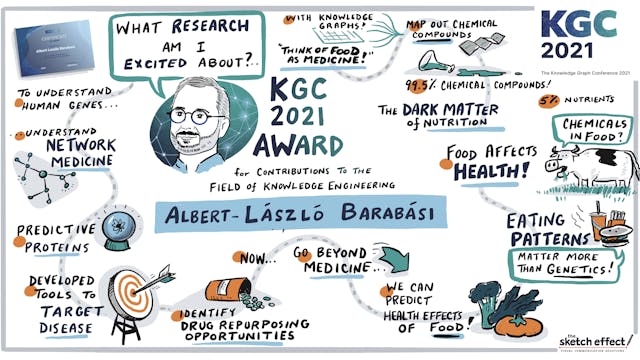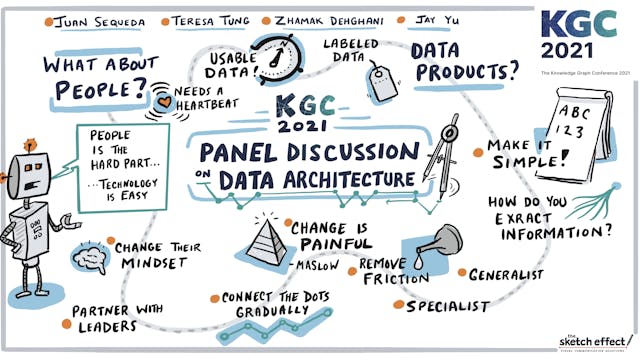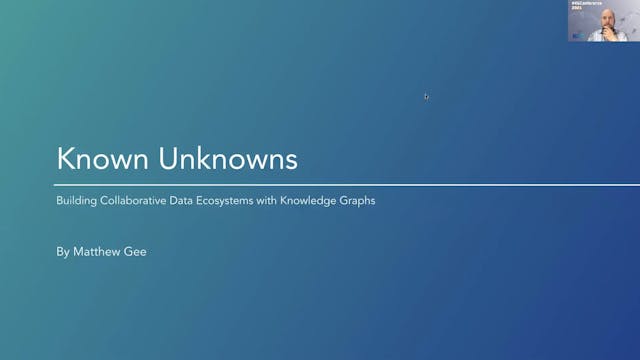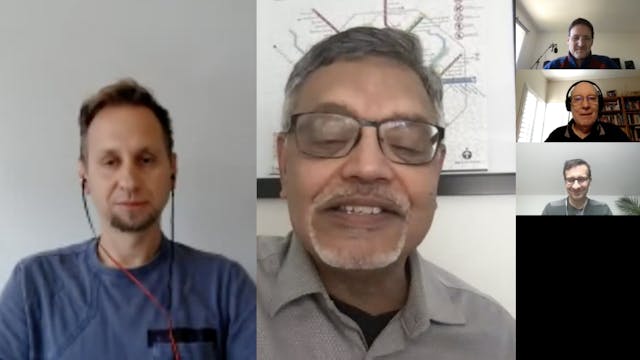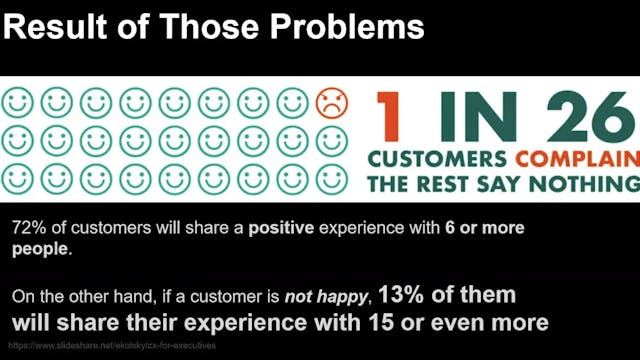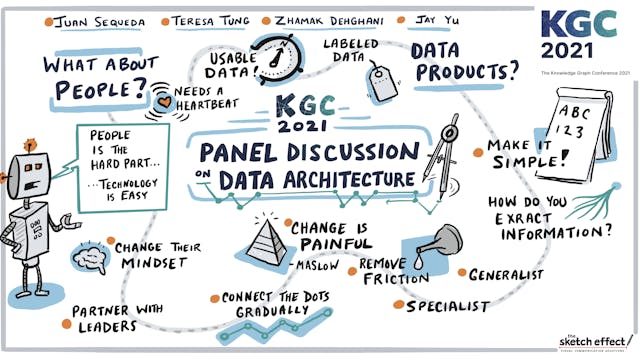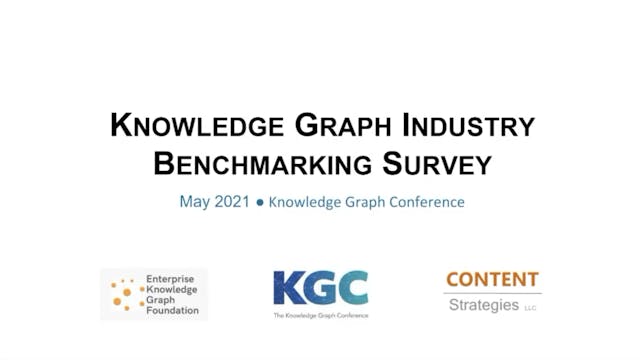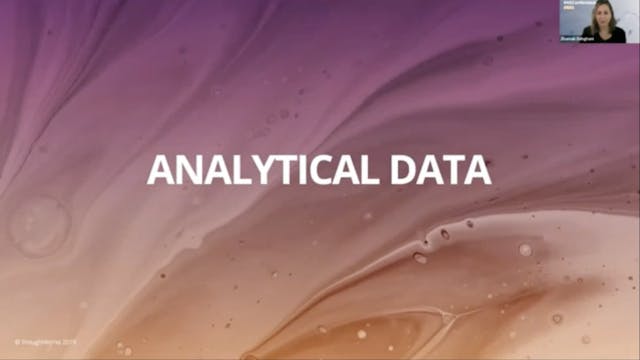-
Keshav Pingali | High Performance Knowledge Graph Computing On Katana Graph
Knowledge Graphs now power many applications across diverse industries such as FinTech, Pharma and Manufacturing. Data volumes are growing at a staggering rate, and graphs with hundreds of billions edges are not uncommon. Computations on such data sets include querying, analytics, pattern mining,...
-
Andriy Nikolov | Biological Insights: Knowledge Graph To Help Drug Development
The use of knowledge graphs as a data source for machine learning methods to solve complex problems in life sciences has rapidly become popular in recent years. Our Biological Insights Knowledge Graph (BIKG) combines relevant data for drug development from more than 50 public as well as internal ...
-
Veronika Heimsbakk | Tales From The Road Of Text To Knowledge
When transforming amounts of plain text into semantic knowledge graphs using Resource Description Framework, a service for automatic interpretation became apparent. Manual interpretation of text depends on human domain knowledge and discovery of entities and relationships in the text. This proces...
-
Atanas Kirakov | Knowledge Graph Magic Map: Capabilities & Partners
Ontotext teams up with portfolio partners to offer a complete platform with best-of-bread tools for: schema and taxonomy editing; data transformation and linking; access control and federation; data updates and validation; search and visualization. The ecosystem also includes global and regional ...
-
Olaf Hartig | RDF Star: Metadata For RDF Statements
The lack of a convenient way to capture annotations and statements about individual RDF triples has been a long standing issue for RDF. Such annotations are a native feature in other contemporary graph data models (e.g., edge properties in the Property Graph model). In recent years, the RDF* app...
-
Cedric Berger | Data Governance 4.0 Applied To A Unified Clinical Data Model
Driven by legacy paper-based approaches, the design, conduction and analysis of clinical studies requires the creation and transformation of many data in many different formats. This hinders the process and necessitates significant resources. Having metadata-driven transformation is not new, howe...
-
Chen Zhang & Dmytro Dolgopolov | Entity Disambiguation With Knowledge Graph
During the presentation, we will share our experience in building a knowledge graph leveraging Spark, NLP, and Machine Learning. We will start with explaining the business problems and challenges. Then walk through our data pipeline, including text analytics processes, name similarity solutions, ...
-
Andreas Blumauer | The Semantic Content Hub: Transforming Data Hurdles
Ambiguity, language discrepancies, and lack of background information are just a few challenges that organizations face on a daily basis when trying to analyze their content and data. When an organization produces data that is hard to manage, what methodologies can be used to turn unstructured (i...
-
Jan Hidders | A Report From The Property Graph Schema Working Group
The Property Graph Schema Working Group (PGSWG) is an informal working group that was set up in 2018 under the umbrella of LDBC, the Linked Data Benchmark Council, to support the formal working group that works on the SQL/PGQ and GQL, the upcoming ISO/IEC standards for managing property graphs. T...
-
Abhishek Mittal | Re-Imagining Regulatory Obligation Management
Content Enrichment: Development and deployment of a 5-stage taxonomy. Applying the taxonomy to tag regulations and classify them for improved discovery & work assignment.
Smart Authoring: Leveraging advanced NLP and ML techniques to learn from the past content authoring for identification of ... -
Ying Ding | Katana Graph Solutions: Scalable Graph Search & Graph Mining
When knowledge graphs in your company get larger and larger, a scalable graph search is in high demand. In the current graph search solutions, scalability is still a big issue. Furthermore, with the fast development of deep learning on graphs, many companies rely on deep learning methods to mine ...
-
Maulik Kamdar | Elsevier's Healthcare Knowledge Graph
Knowledge Graphs are increasingly being developed and leveraged in academia and industry to tackle complex biomedical challenges, such as drug discovery and safety, medical literature search, clinical decision support, and disease monitoring and management. In this talk, we will present the resea...
-
Alex Kalinowski | Structured To Unstructured & Back: Integrated KG and NLP
Identification of entities and the relations between them is a difficult task for traditional pattern-based matching or machine learning approaches; these techniques rapidly overfit training datasets and struggle to transfer to other contexts or domains. Utilizing outside knowledge, such as facts...
-
Luke Feeney | Why A Knowledge Graph Is Best For Distributed Collaboration
There has been an explosion of tools - especially in the machine learning space - describing themselves as ‘git for data’. This talk will review the main open source players and link the interest to data mesh architectures. Not to jump to outcomes without first conducting the review, but it will ...
-
Stefan Plantikow | The Upcoming GQL Standard
Following the GQL Manifesto, the ISO working group that develops the SQL standard voted to initiate a project for a new database language: GQL (Graph Query Language). This talk presents an overview of the goals of GQL and the progress so far, key aspects of the language design such as the basic d...
-
Mike Tung | Automated Knowledge Graphs For Market Intelligence
Nearly every business is constantly trying to identify, analyze, and grow their market. Yet, traditional processes for data management inevitably lead to a database that contains missing, outdated, invalid, or inconsistent data. Automated knowledge graph construction techniques are a scalable w...
-
Martynas Jusevicius | Data-centric Transformation
One of the key pieces of global infrastructure today is the web yet it continues to be developed using legacy technologies dating back to the 1960s. A result of using outdated technology in turn has created several major problems. First, relational data models are a primary contributor to the dat...
-
Joshua Shinavier | Anything To Graph
Show me your schemas, and I will show you a graph! Although graph databases have become very popular in the enterprise, deep expertise in graphs is still in short supply (see "Building an Enterprise Knowledge Graph @Uber: Lessons from Reality" from KGC 2019). Developers often think of graphs as a...
-
Trey Botard | Bringing Time & Truth To Semantic Data
Semantic systems provide tremendous opportunities to interoperate our data, facilitate shared vocabularies, and power enterprise knowledge graphs, but these increasingly distributed data ecosystems also introduce new instabilities and concerns. What happens when data we rely on is changing in une...
-
Ben De Meester | PROV4ITDaTa: Flexible Knowledge Graph Generation Within Reach
Personal Knowledge Graph generation is no longer a cumbersome technical endeavor. PROV4ITDaTa is an MIT open source platform to provide a smooth user experience for generating knowledge graphs from your online web services, such as Google, Flickr, and Imgur, into your personal data space. This br...
-
Juan Sequeda | History Of Knowledge Graphs: Main Ideas
Knowledge Graphs can be considered as fulfilling an early vision in Computer Science of creating intelligent systems that integrate knowledge and data at large scale. Stemming from scientific advancements in research areas of Semantic Web, Databases, Knowledge representation, NLP, Machine Learnin...
-
Branimir Rakic | OriginTrail: Decentralized Knowledge Graph
Knowledge graphs are powerful tools used by organizations to integrate their siloed data into useful, machine readable information for a wide range of purposes. The OriginTrail Decentralized Knowledge Graph (DKG) extends this approach to enable trusted knowledge exchange between multiple organiza...
-
Ben Szekley | How To Build Enterprise Scalability Knowledge Graph Platforms
In recently naming graph technology one of their top 10 trends data and analytic trends for 2021, the Gartner Group highlighted an emerging pattern: today an ever increasing number of F1000 organizations are implementing graph technology not to address point graph use cases, but rather data integ...
-
Laura Ham | Introduction To Weaviate Vector Search Engine
This talk is an introduction to the vector search engine Weaviate. You will learn how storing data using vectors enables semantic search and automatic data classification. Topics like the underlying vector storage mechanism and how the pre-trained language vectorization model enables this are tou...
-
Antonin Delpeuch | Scaling & Maintaining OpenRefine
OpenRefine is a data wrangling tool which celebrated its 10th birthday this year. Cleaning and importing data in knowledge graphs is its core use case, since it was originally designed to help populate Freebase. In this talk I want to give a broad overview of the latest developments in the tool a...
-
Freddy Lecue | On The Role Of Knowledge Graphs In Explainable Machine Learning
Machine Learning (ML), as one of the key drivers of Artificial Intelligence, has demonstrated disruptive results in numerous industries. However one of the most fundamental problems of applying ML, and particularly Artificial Neural Network models, in critical systems is its inability to provide ...
-
Mark Grover | From Discovering To Trusting Data
Over a third of analyst time is spent in understanding what data exists, can it be trusted and how to use it. Countless Data Engineering time is spent in answering the same questions about data - what does that column mean, how does it get populated, how often does it update and if there’s any in...
-
Paco Nathan | Graph Based Data Science
Python offers excellent libraries for working with graphs: semantic technologies, graph queries, interactive visualizations, graph algorithms, probabilistic graph inference, as well as embedding and other integrations with deep learning. However, most of these approaches share little common groun...
-
Bernhard Krabina | Semantic MediaWiki As Knowledge Graph Interface
Semantic MediaWiki (SMW), which was introduced as early as in 2006, has since gone on to establish a vital community and is currently one of the few semantic wiki solutions still in existence. SMW is an extension of MediaWiki, the software used for Wikipedia and many other projects, resulting in ...
-
Steven Gustafson | Connecting The Dots With Knowledge & Data
Knowledge graphs provide a way for us to capture and relate information into a representation that can mimic expert knowledge. One type of expert knowledge that has proven to be particularly useful in industry is reasoning by analogy, or using a replacement problem and solution pair to think abo...
-
Barr Moses | Data Observability: The Next Frontier Of Data Engineering
To keep pace with data’s clock speed of innovation, data engineers need to invest not only in the latest modeling and analytics tools, but also technologies that can increase data accuracy and prevent broken pipelines. The solution? Data observability, the next frontier of data engineering. I'll ...
-
Johannes Keizer | VocBench: A Semantic Web Collab Dev. Platform For Ontologies
This presentation will feature and demonstrate "VocBench", an semantic web collaborative development platform for ontologies, thesauri and lexicons.
VocBench has initially been developed for maintenance of the thesaurus "Agrovoc". It has become then a generic tool for thesaurus management and now... -
Justin Zhen & Francois Scharffe | Building Data Products Using No-code KGs
Description: The switch to decentralization in data management is finally happening as organizations struggle with a disconnect between data teams and domain knowledge. Once a new organizational structure around data domains is in place, the need for platforms for managing data products appears. ...
-
Peter Hicks | Visualizing Data Lineage
Extracting metadata from data pipelines and building useful graphs for real production environments.
-
Zhamak Dehghani | Introduction To Data Mesh
For over half a century organizations have assumed that data is an asset to collect more of, and data must be centralized to be useful. These assumptions have led to centralized and monolithic architectures such as data warehousing and data lake, and neither of which have been able to enable data...
-
Neda Abolhassani & Teresa Tung | Accelerating Industry Data Integration
A data supply chain is industry-specific, but many data prep tools are industry agnostic. As part doing this work, data engineers and domain experts apply their deep knowledge of how to transform raw data to a form that can address specific problems. In this way, the data supply chain is a doma...
-
Jay Yu | Weave Knowledge Graph Tech In Enterprise Data Architecture
Intuit is embarking on a multi-year journey to transform from a financial product-centric company into an "AI-driven Expert Platform" company. We have aligned our enterprise data architecture and strategy to the company growth strategy, with a clean end-to-end enterprise architecture that embrac...
-
Julian Grummer | What Can We Learn From Knowledge Graphs: A Wirecard Perspective
The Wirecard scandal was one of the most shocking economic events in Germany in 2020. The former DAX30 company collapsed on June 25, owing creditors more than €3.5 billion (almost $4 billion) after disclosing a gaping hole in its books that its auditor EY said was the result of a sophisticated gl...
-
Mohammed Aaser | Future Of Enterprise Data Management
Many organizations have initiated data and analytics transformations with some success, however are beginning to face challenges in scaling efforts beyond a handful of applications/use cases. One of the major barriers remains around data management, including challenges with data transparency, i...
-
Konstantin Todorov | Browsing The Web Of Claims
How do falsehoods spread on the web? This and other questions related to the propagation of fake news and biased discourse in the public area have been drawing increasing interest in different communities from social sciences to artificial intelligence. Online discourse, i.e. claims and opinions ...
-
Chaitan Baru | Open Knowledge Network
The concept of an Open Knowledge Network (OKN) is one of the components of the National Science Foundation’s Harnessing the Data Revolution (HDR) Big Idea, with the objective of providing semantic information infrastructure. By encoding information and knowledge about real-world entities and thei...
-
Ryan Wisnesky | How To Optimally Merge Knowledge Graphs With Category Theory
In this talk we describe a new technique for merging knowledge graphs: translating the knowledge graph schemas into categories and the knowledge graph data into functors, then applying the "co-limit/pushout" construction from a branch of mathematics called category theory to merge these categorie...
-
Paolo Manghi | The OpenAIRE Research Graph: Science As A Public Good
The presentation will introduce the motivations, architecture, and operation of the OpenAIRE Research Graph (http://graph.openaire.eu), one of the largest (if not the largest) public, open access, collections of metadata and semantic links (~1Bi) between research-related entities: articles (124M+...
-
Alena Vasilevich | Benefits Of Collaborative AI vs. Manual Creation
In the realm of data-driven businesses, structured data, being highly organized and easily understood by machines, is a valuable resource. IATE, with almost one million concepts storing multilingual terms and metadata, holds a large part of the textual knowledge of the EU. However, it can only be...
-
Dan McCreary | Graph Hardware Is Coming!
In this presentation we will show how current general-purpose CPU hardware fails to deliver high performance graph analytics. We show that by doing a detailed analysis of the actual hardware functionally needed by graph queries (pointer jumping), we can redesign hardware that is optimized for fas...
-
Chris Welty | Shopping Sense: Bringing Common Sense To Worldwide Shopping
Knowledge Graphs (KGs) continue to penetrate the industrial world after Google's famous "things not strings" was used to explain their acquisition of FreeBase ten years ago. While many KGs exist, they are by and large little more than "entity catalogs", missing entirely the links between those e...
-
Roi Krakovski | The Usearch Contextual Graph
We exploit the recent breakthroughs in Neuroscience to build web search engines based entirely on AI-generated data, thus eliminating the need to collect users’ data. We show how to generate search queries that are almost identical to real users’ queries. We use the generated queries to build a ...
-
Mike Welch | Serving A Web Scale Knowledge Graph
The Yahoo Knowledge Graph powers entity data for user experiences across multiple products at Verizon Media, from search to media to ads. Nodes in the knowledge graph correspond to real world entities: people, places, movies, sports teams, and so on. The edges represent semantic relationships bet...
-
Krzysztof Janowicz | Know, Know Where, KnowWhereGraph
The KnowWhereGraph project aims at providing a densely interlinked knowledge graph for environmental intelligence applications and situational awareness services (area briefings) that enrich the data of decision-makers and data scientists with pre-integrated data custom-tailored to their spatial ...
-
Sergio Baranzini | SPOKE: A Biomedical Open Knowledge Graph
SPOKE is a biomedical knowledge graph containing factual data on various biomedical fields including genetics, molecular biology, physiology, metabolomics, pharmacology and clinical medicine. SPOKE can be used to repurpose medications, predict patient outcomes, and accelerate drug development, am...
-
Michael Cafarella | Infrastructure For Knowledge Graph Application Programming
Social Knowledge Graphs such as Wikidata have become massive successes, obtaining a level of coverage and quality that would be the envy of many traditional relational database engineering projects. And yet the downstream use scenarios for such datasets remain sharply limited compared to the vast...
-
Xian Li | AutoKnow: Self-Driving Knowledge Collection For Products
Can one build a knowledge graph (KG) for all products in the world? Knowledge graphs have firmly established themselves as valuable sources of information for search and question answering, and it is natural to wonder if a KG can contain information about products
offered at online retail sites.... -
Shekhar Iyer | Multi-Modal Retrieval Over Knowledge Graphs
Recent Advances in representation learning and application of Deep Neural Nets towards structured data and Knowledge Graphs (KG) is enabling opportunities for multi-modal representation of entities and relations. We can now aspire to build access to data encoded in knowledge Graphs through one of...
-
Ridho Reinanda | Financial Knowledge Graph At Bloomberg
The Bloomberg Knowledge Graph is a graph-centric representation of entities and relationships in the financial world which connects cross-domain data from various sources within Bloomberg. Recent developments in machine learning, knowledge graphs, and language technology have enabled intelligent ...
-
Melliyal Annamalai | Developing Enterprise Applications With Oracle Graph
Application developers often need to work with a variety of data types, data models, and workloads within an application. Oracle Database is a multi-model, multi-workload data platform with model-specific tools and technologies, enabling developers to build integrated applications while taking a...
-
Amgad Madkour | Entity Life Cycle In Search-Centric Knowledge Graphs
Entity-based results are becoming an integral part of the search experience. Search-centric companies highly rely on knowledge graphs in providing the necessary information for building rich search experiences. An entity can originate from a structured, semi-structured, or unstructured data sourc...
-
Peter Rose | Integrating Heterogeneous Data Sources Into A COVID-19 Graph
The COVID-19 pandemic has mobilized researchers worldwide to investigate many aspects of the outbreak, ranging from case statistics, patient demographics, transportation modeling, epidemiological studies, to viral genome sequencing. Relevant data are produced and publically shared at an unprecede...
-
Peter Winstanley & Boris Pelakh | W3C Dataset Exchange Group
This presentation will introduce and detail the current work of the W3C Dataset Exchange Working Group, including detail of the developments in the DCAT (Data Catalog) vocabulary and the proposal for content negotiation by profile (ConnegP) which is being developed by the working group in conjunc...
-
Workshops & Tutorials Overview
-
Panel Discussion | NLP for Knowledge Graphs
-
Panel Discussion on Life Sciences
-
Panel Discussion | Standardization Efforts For Knowledge Graphs
-
Panel Discussion | Graph Data Science
-
Jonas Almeida | Data Commons In The Wild - It's An API World Out There
The increasing reliance on distributed epidemiological data sources for time sensitive analysis defines an emergent computational commons space: API ecosystems supporting epidemiology data commons. This space has been forced to evolve significantly to meet the real-time requirements of COVID-19 i...
-
Ora Lassila | A Knowledge Graph is More Than Just a Graph Database
Customer adoption of graph databases is growing rapidly and has attracted many vendors and products. Graphs, as an abstraction, are a simple and intuitive way to model information about the world. Despite this, the learning curve for building a graph-based application remains steep and daunting, ...
-
Nicole Moldovan | NLP: A Cornerstone for a Successful Graph
We’ll explore how unstructured and structured data can come together to tell a complete story through the lens of a pharma clinical trial and subsequent events in the field. We’ll weave through the patient history and other documents using an ontology and several NLP tools, then use natural langu...
-
Michael Grove | How To Build a Data Fabric
The enterprise data landscape is increasingly hybrid, varied, and changing. The emergence of IoT, rise in unstructured data volume, increasing relevance of external data sources, and trend towards hybrid multi-cloud environments are obstacles to satisfying each new data request. The old data stra...
-
Eelke van der Horst | Building an Immuno-Oncology & Cell Therapy Knowledge Graph
Bristol-Myers Squibb (BMS) is a global pharmaceutical company with drug discovery and development programs in several therapeutic areas. As part of its enterprise information governance, there is an ongoing effort to unlock research data from siloed systems, by building a knowledge graph that tra...
-
KGC 2021 Sponsors
-
KGC 2021 Overview
-
KGC 2021: See For Yourself!
-
Laszlo Barabasi Award Timelapse
-
Industry Benchmark Survey Timelapse
-
KGC 2021 Award Winner | Albert-Laszlo Barabasi
-
Panel Discussion | Data Architecture, Timelapse
-
Matt Gee | Known Unknowns: Promoting Collaborative Data Ecosystems with KGs
Despite the estimated 70 zettabytes of data produced worldwide, the production and use of data is unequal and its conversion to knowledge uneven across communities and sectors. To address this data & knowledge inequality, both the public and philanthropic sectors are increasing investments in...
-
Panel Discussion | OKN
-
Panel Discussion | Search
-
From Network Medicine to Food and Knowledge Graphs
Albert Laszlo Barabasi is here to to talk about what he is most excited which is network medicine. Albert presents what network medicine is, which is a network-based approach to human diseases and he explains that the existence of disease module is important because it would benefit if you reall...
-
From Vision to Reality | A Fireside Chat with Knowledge Graph Trailblazers
In this panel discussion leaders from Raytheon, Bosch, Merck KGaA, and Deloitte will share their vision for knowledge graph technology and describe how they are translating that vision into reality within their own Digital Twin, Regulatory Data Fabric, and Operational Resilience initiatives. Wit...
-
Duane Forrester | Your Future in Search is Built on Knowledge Graphs
The future of search is already known, and it's built on Knowledge Graphs. From a business' POV, we'll explore the focus of search engines today, why KGs are so integral and examine the benefits of building your own site around a knowledge graph. From increases in customer retention, conversion a...
-
Panel Discussion | Data Architecture
-
Knowledge Graph Industry Survey
-
Introduction to Data Mesh | A paradigm shift in managing analytical data

